Published on: May 19, 2023 Updated on: February 1, 2024
Top 5 AI Business Ideas Guaranteed To Make Money In 2024
Author: Daniel Coombes

The artificial intelligence sector is currently worth $136.55 billion; however, the industry is predicted to expand at a compound annual growth rate of 37.3% until 2030.
With this expected rapid growth will come countless opportunities for budding entrepreneurs to embrace the power of AI and to create incredibly lucrative business models.
Come with us as we take a look at the top five AI business ideas that are guaranteed to make you money in the coming years.
Top 6 AI startup ideas
Take a look at these five incredible and profitable AI business ideas that are sure to turn you a pretty penny in 2023.
1. Audio content search engine
Audio content is varied and can be divided into several distinct categories, each with a considerable net worth. Check out the table below to see how much some the sectors are worth.
| Type | Net worth |
| Podcast | $18.52 billion |
| Radio | $136.29 billion |
| Audiobooks | $5,364.9 million |
| Music | $26.2 billion |
If we look at the Google search engine homepage, there are numerous search functions, including:
- News
- Images
- Videos
- Websites
- Shopping
- Books
- Finance
- Flights
However, despite the unfathomable amount of untapped net worth, there is a distinct lack of an audio content search feature.

This type of AI technology can search for audio content in three distinct methods:
- Text: A user enters text into the search bar, which is then decoded using a combination of machine learning and natural language processing. The algorithm then searches its training data to locate audio content with relevant tags.
- Image: This type of search engine analyzes an image to extract associated keywords. These tags are then used to find related content to the input in the database.
- Audio: Audio searching allows a user to sing, hum, or simply play a song on a device for the AI tool to identify a sound pattern. This pattern is then compared to others within the database, with any that show similarities becoming search results.
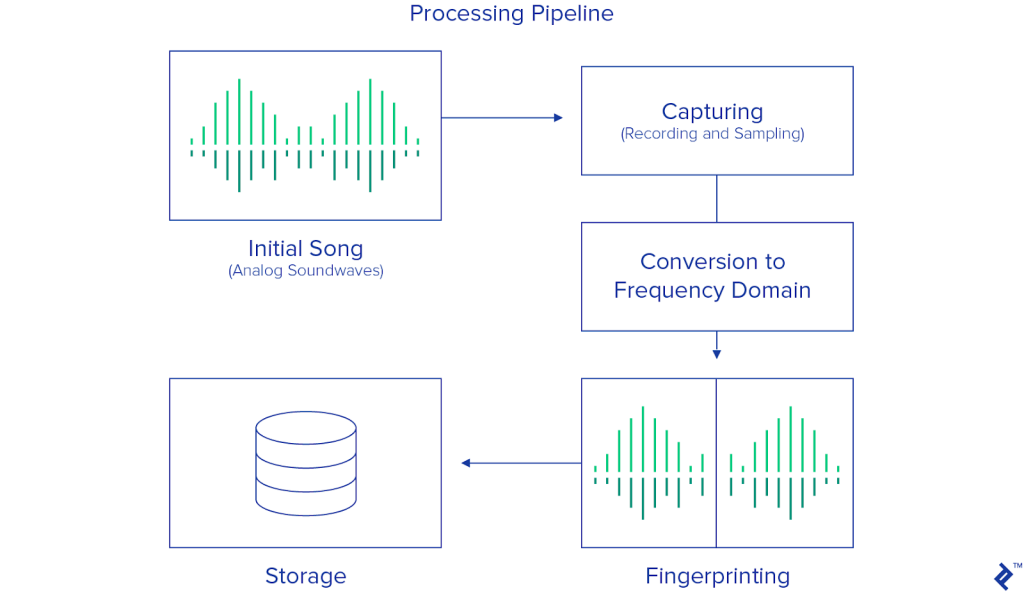
The central issue with this technology is the need for incredibly accurate transcriptions of audio to allow the data to be categorized and thus searched effectively. Unfortunately, in its current state, speech-to-text software is not at the required level needed to achieve this task.
Tim Olsen, head of strategic planning at KQED media station, uses audio news as a clear example of this technology’s limitation. The software finds the identification of proper nouns difficult to categorize, often using guesswork to fill in the blanks. This is a considerable flaw in an industry such as news distribution, where accuracy is crucial.
However, there are numerous profitable companies making a big splash within this growing application of AI technology, including:

2. Crop disease detection
The FAO (Food and Agriculture Organization) states that, on average, 40% of worldwide crop production is wasted due to disease. This costs the agricultural industry an unbelievable $220 billion.

The early identification and prevention of these deadly diseases could lead to AI business owners earning substantial profits.
Traditionally, the task of identifying diseases in crops has been a manual one involving farmers either reading books, searching the internet, or providing a cutting to a local small business with relevant knowledge. Unfortunately, this approach is time-consuming, inconsistent, and often inaccurate.
However, by utilizing a combination of computer vision, image-capturing technology, and deep learning, the artificial intelligence industry seems to have formulated a competent solution.

By using a smartphone or drone to capture an image of the crop in question, the artificial intelligence system will then compare the image to a massive data set of visual media of both diseased and healthy plants. This form of robotic image recognition will offer farmers real-time, automated identification of diseases, with one study noting that this approach has a 99.35% accuracy rate.

Some of the current industry leaders in this technology are:

3. Investment decision making
The current volatility of the stock market has had disastrous consequences for countless investors, resulting in an estimated 90% of individuals losing money in stocks. However, in stark contrast, some investors optimistically expect to see returns of about 17.5%.

These extreme highs and lows of the investment sector have made predictive analytics an incredibly profitable business prospect for many entrepreneurs.
The idea of having a competitive advantage in this cutthroat market is undeniably alluring to countless investors. Utilizing state-of-the-art machine learning and natural language processing, artificial intelligence has made the unpredictable nature of the stock market predictable.
These sophisticated algorithms scan countless amounts of alternative data sources for relevant information about investable businesses. These datasets come from external sources from outside the business, including:
- Social media
- Press releases
- Foot traffic
- Internet activity
- Shipping trackers
- Price trackers
- Satellite imagery

The AI software can then generate reports that include the potential risks, possible rewards, and predicted trajectories of an investment. This type of digital forecasting provides traders with the most relevant and in-depth information, allowing investors to make informed decisions for their finances.
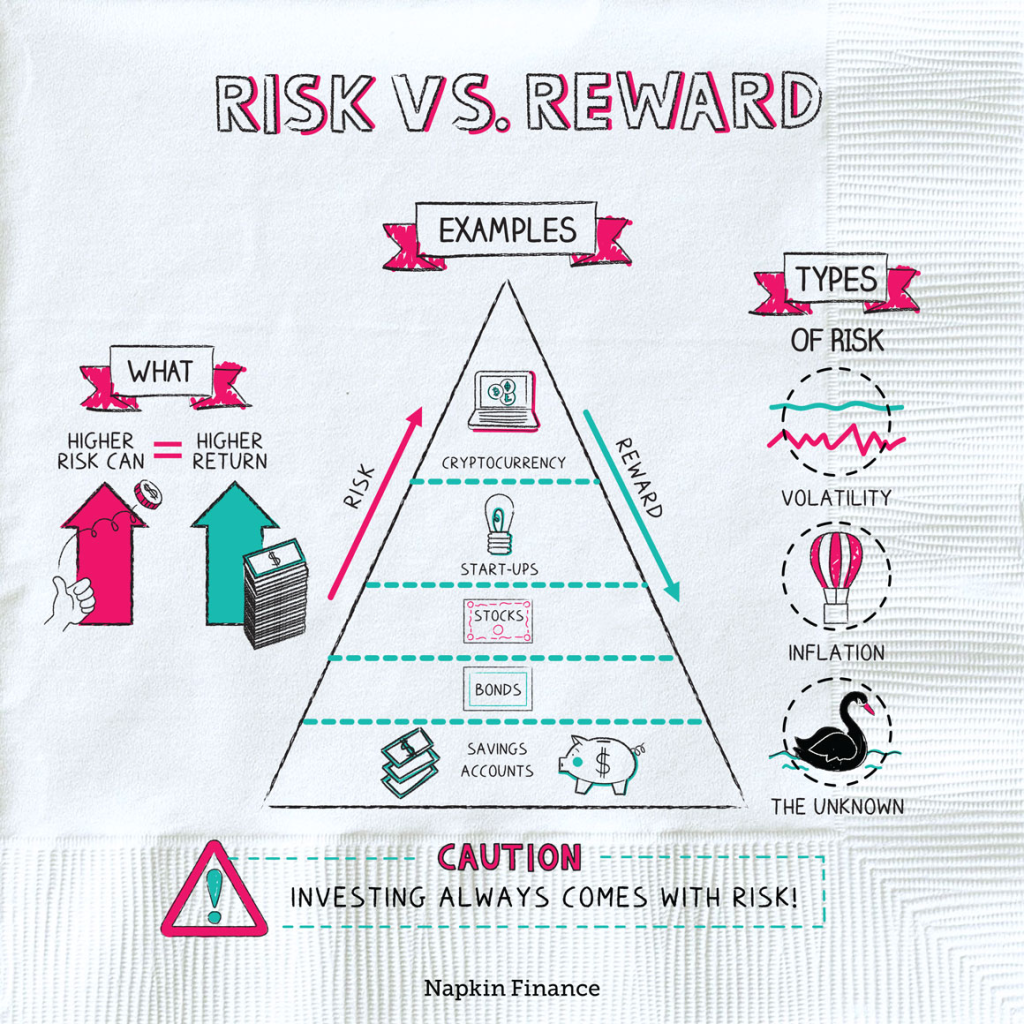
Shockingly, there are currently only 400 alternative data service providers that are supplying this critical data to the investment industry. The current top alternative data aggregators are:
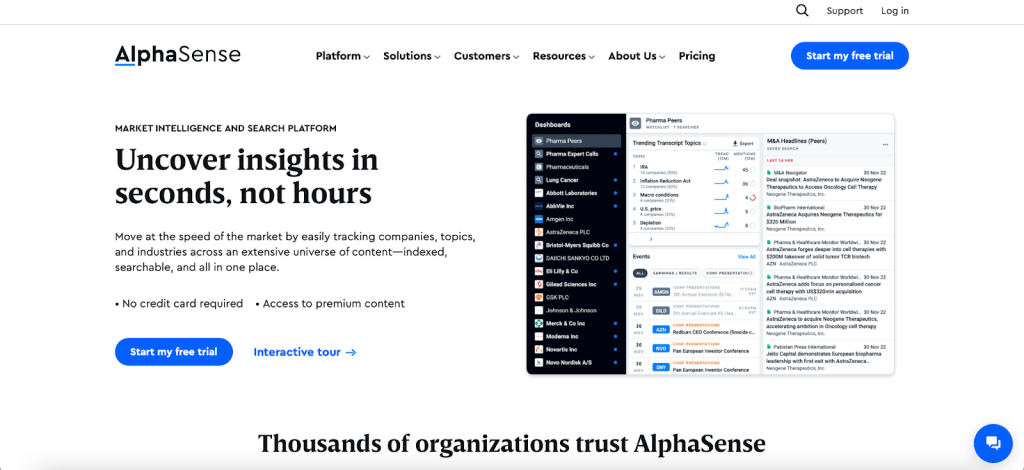
4. Predictive healthcare models
In 2021, there were 10 million deaths linked to cancer, this equates to one out of every six deaths globally. Even more shockingly, 20% of these deaths could have been avoidable with early detection meaning that two million lives could have been saved.

Artificial intelligence could be the solution to countless unnecessary deaths across the healthcare industry as it looks to revolutionize predicting diseases among patients. These algorithms intake mass amounts of big data to identify ‘predictors’ in patients. These predictors are factors that could indicate an increased chance of developing a certain health condition.

To create an AI model capable of predicting diagnoses, healthcare startups must follow the following five steps:
- Datasets: It is important to provide the model with a robust and diverse range of datasets that are relevant to the desired outcome, including electronic health records, medical claims, registries, lab claims, and consumer data.
- Cohorts: To identify a health condition, the system must have information about both positive and negative cohorts, patients with and without the disease. For instance, in a system that predicts heart conditions, it would be crucial to have in-depth information about patients with and without heart disease.
- Predictor design: Developers must train the model in both knowledge-based and data-driven predictors for the disease.
- Assessing performance: It is essential for the model to be repeatedly tested to understand its potential usage in real-world scenarios.
- Model results: The results from these tests must be examined to understand the model’s behavior and thought process when diagnosing patients.

Examples of healthcare startups developing predictive healthcare models include:
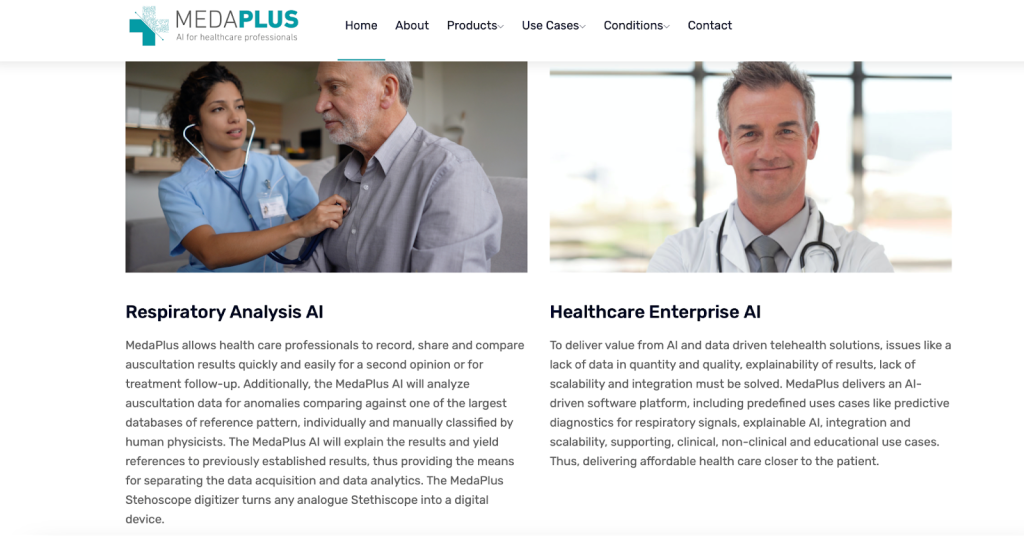
5. Personalized e-learning
The Ed-tech sector has experienced a significant boom in the last few years, with the market size reaching $142.37 billion in 2023. This is expected to grow to an unbelievable $348.41 billion in 2030.
A common belief in the education system is that students learn in five different styles, which include:
- Visual
- Aural
- Reading
- Kinesthetic
- Multimodal
93% of teachers state that students learn considerably better if the information is provided to them in their preferred learning style.

Initial research in the utilization of artificial intelligence to personalize the education experience found that 11,000 students from 62 schools showed more significant improvement in math and reading skills than children from traditional schools.

There are distinct advantages and disadvantages of integrating machine learning and natural language processing to personalize education which can be seen in the table below.
| Advantages | Disadvantages |
| Can engage students by focusing on their interests and hobbies | The use of confidential student data could cause security breaches |
| Allows teachers to have more time to undertake other tasks | Bias within the training data could lead to misinformation |
| Uses the best learning style to teach each student | Fear of job loss for teachers |
| Chatbots can answer student’s questions automatically | Students have reduced human interaction |
| Provides teachers with a better understanding of a pupil’s progress | Lack of emotional intelligence to support students |
| Identify learning gaps within a students knowledge base | Promotes a reliance on technology |
| Allows students to learn at their own pace. | The cost of artificial intelligence will cause unfair disadvantages to underfunded schools. |
| Continuous creation of new, engaging content. Provide accurate predictions about exam results. | Minimizes critical and creative thinking in students |
The current industry leaders using artificial intelligence to personalize education are:
- Age of Learning
- BYJU’S
- Riiid
- Cogni
- Knewton
- Dreambox learning
- Khan Academy
- CanopyLAB
- CENTURY Tech
- Carnegie Learning
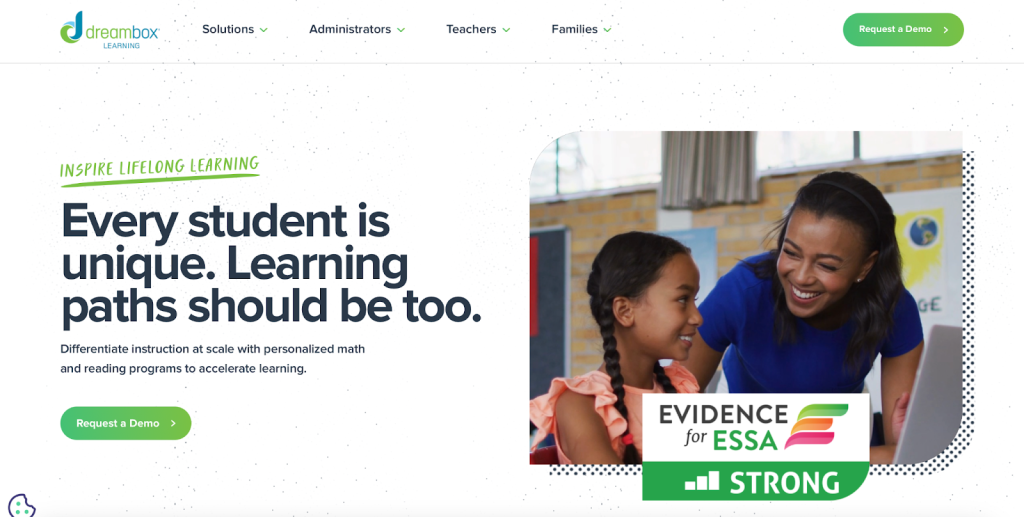
6. AI video generation tools
Any good AI business idea taps into a successful and growing industry. And in our time, what’s bigger than social media? We can’t live without it, so why not use it?
Many AI startups have focused in on this, but it doesn’t mean it’s a saturated industry. In fact, the world of social media is constantly changing. Which means the demands and needs are too. The most successful AI business idea is one that keeps the finger on the pulse and acts quickly.
Right now, the most useful AI tools are those that help people create video content, and it seems it will stay this way for a while. Alongside this, AI content creation has blown up. From avatars to voiceovers, AI algorithms are magic for content creators.
So, developing a tool that helps people create AI-generated content might be your next best AI-based business idea.
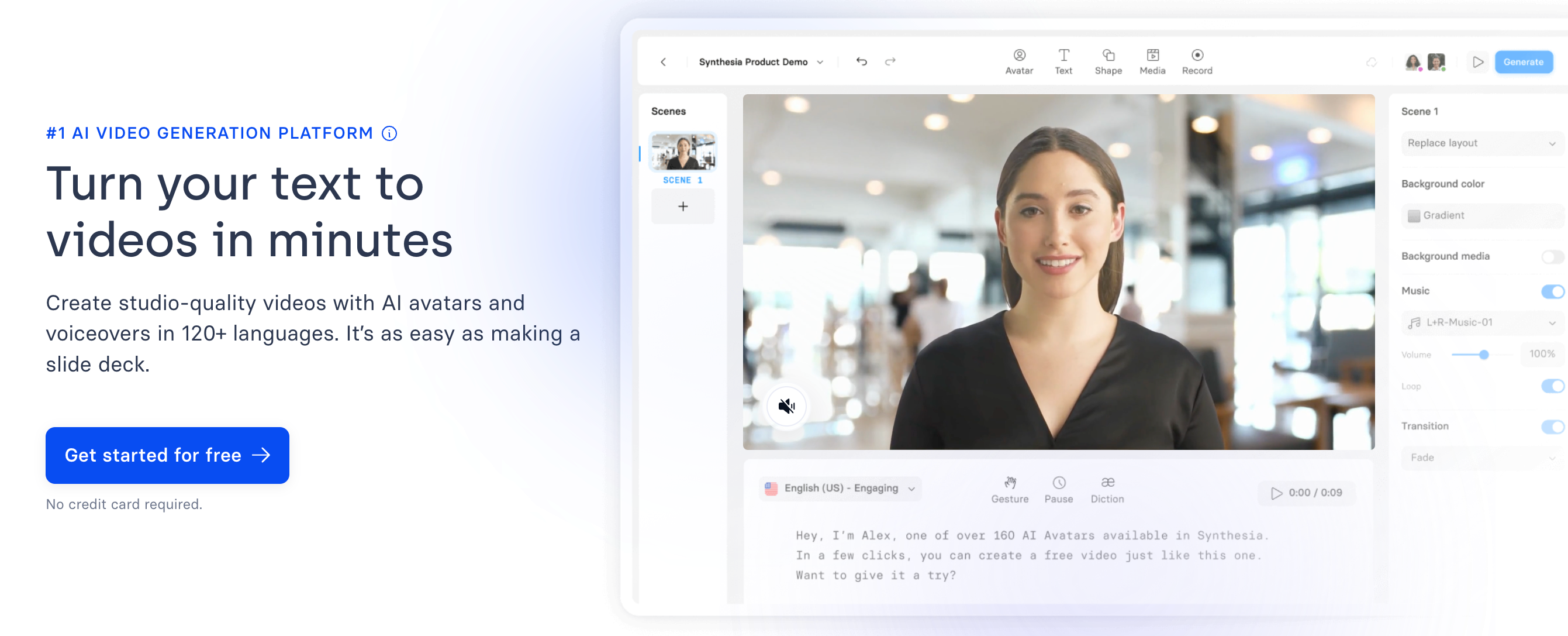
To make this business successful, you need to incorporate as many AI solutions as possible. These could include:
- AI-powered editing: Not all content creators are experts at video editing software. And it’s not surprising! These programs can be confusing and difficult to use, slowing workflows and stalling marketing campaigns. However, AI-powered editing can make this a more intuitive process for your customers.
- AI-generated content: AI algorithms can generate content from simple text prompts. This means people can create any video they like from a simple idea. This means people can easily scale their content creation for every platform.
- AI voiceovers for video: Text-to-voice generators are incredibly useful for a variety of reasons, and one popular use case includes voiceovers for video content. Recording real voiceovers requires expensive equipment, time, and effort. A quick and easy way to scale is to simply automate the voiceover process. And it sounds more human than ever!
- AI script generation: Natural language processing (NLP) technology means that artificial intelligence systems can generate written content that can be aligned with your brand, voice, and character. This can help tackle writer’s block and give you new ideas for your marketing campaigns and personal content creation.
By providing AI-powered solutions for every step of the video creation process, your business can act as a one-stop shop for sales and marketing teams, content creators, and individuals who want to play around with this technology. Ideally, once your customers use your tool once, they’ll forget how they survived without it!
Even more winning AI business ideas for 2023
While we have already covered our top five artificial intelligence business ideas, there are still plenty of other incredible propositions for entrepreneurs to stick their teeth into:
- Content creation: Developing a virtual assistant capable of creating high-quality visual and textual content.
- Workflow automation: Designing an artificial intelligence that can streamline tedious business processes.
- Customer support: Utilizing chatbots, such as ChatGPT, to automate customer service conversations with clients.
- E-commerce: Using the Internet of Things (IoT) to create fully personalized shopping experiences for customers.
- Smart home management: Enabling artificial intelligence to manage and maintain smart home features within the household.
- Recruitment: Creating programs that can use natural language processing to identify keywords within resumes to efficiently find an ideal candidate.
- Marketing strategy: Implementing technology that can analyze big data sources to understand the needs and wants of your target audience, allowing for tailor-made marketing campaigns.
- Supply chain optimization: Using artificial intelligence to control efficiency and waste in supply chain management.
- Fraud detection: Creating an AI system that can identify suspicious behavior that could be indicative of fraudulent behavior.
- Cybersecurity: Deploying artificial intelligence to locate and deal with cyber attack threats.

The digital world is your oyster
While we have covered a fair few artificial intelligence business ideas within this blog, continuous advancements in technology mean that there are literally thousands more profitable enterprises to discover.
We recommend researching the most lucrative, popular, and innovative artificial intelligence companies around to find the best-suited business idea for you.
Struggling to find that inspiration during the initial stages of app development? Head to the Topapps library now to find a selection of the best applications of AI around to spark your creativity.

Daniel Coombes
Daniel is a talented writer from the UK, specializing in the world of technology and mobile applications. With a keen eye for detail and a passion for staying up-to-date with the latest trends in the industry, he is a valuable contributor to TopApps.ai.
Recent Articles

Microsoft servers are down. Your business grinds to a halt. Panic sets in. Stop. Breathe. You’ve got this. This guide gives you 7...
Read More
As a business leader, you’re always searching for ways to stay ahead of the competition. What about AI in marketing and sales? In...
Read More
Struggling to keep up with the competition in 2024? You’re not alone. Small and medium enterprises (SMEs) are facing a rapidly evolving business...
Read More